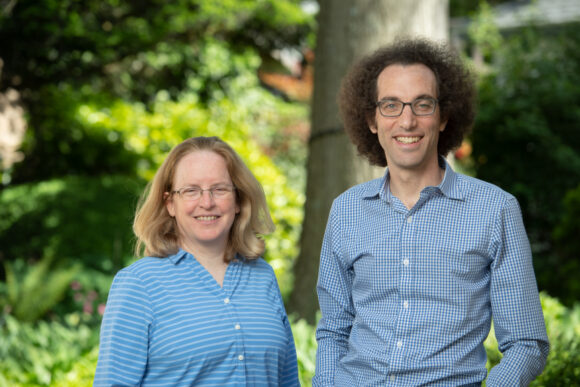Editor’s Note: This article first appeared in the Spring 2021 issue of Rutgers Magazine in the feature titled “Thinking Big”
Rutgers Big Ideas—an initiative of 12 bold projects with global implications—will draw on the university’s academic, health care, and research expertise to make the world a better place.
For more than 250 years, Rutgers has been reaching further, trying harder, and achieving bigger and better things. From the discovery of streptomycin, the first antibiotic used to treat tuberculosis, to the Rutgers Tomato, the university has given birth to bold projects that have made the world a better place.
These innovations didn’t appear by magic. If every great achievement begins with an idea, it is also true that those ideas require resources, collaboration, and organizational support. Rutgers has used these ingredients time and time again. And the university is continuing the tradition in the Big Ideas initiative.
In 2018, Rutgers issued a challenge to its 23,000 faculty and staff to produce their most imaginative, disruptive, and visionary proposals for inspiring widespread, equitable societal change. That challenge resulted in more than 200 collaborative ideas, ranging from cutting-edge cancer treatment to socially engaged art and sustainable urban farming.
Forty teams went on to pitch their large-scale, forward-thinking projects at a symposium on October 4, 2019. Hundreds of community leaders, philanthropists, and innovators gathered to learn more about how Rutgers was applying its intellectual power to serve the common good. They offered their input to guide what came next.
In 2020, as much of the world turned inward in the face of COVID-19, the Rutgers community continued to move the Big Ideas initiative forward. Rutgers chancellors and academic leaders at Rutgers University–New Brunswick, Rutgers Biomedical and Health Sciences, Rutgers University–Newark, and Rutgers University–Camden met repeatedly (and remotely) to discuss and refine the 40 proposals and incorporate feedback from the university community. President Jonathan Holloway reviewed the team’s recommendations and supported the vision and aspirations reflected in their choices.
From those deliberations emerged 12 Big Ideas that advance Rutgers’ status as a world-class university devoted to the greater good. Driven by faculty and researchers across disciplines, divisions, and locations, the 12 interdisciplinary projects hold the potential to address critical issues of our day, such as public health, climate resilience, social justice, access to education, microbiomes, and artificial intelligence.
“These Big Ideas have the capacity to improve the human condition,” says Holloway. “By leveraging Rutgers’ standing as an academic, health, and research powerhouse, our university is poised to lead the nation and world toward a more just and sustainable future. These projects could not come at a more critical time. At what may seem to be a dark hour in human history, Big Ideas promise to light a way forward.”
Atmospheric Conditions
Earth 2100 will monitor regional weather dynamics as a model for managing climate change.

Julie Lockwood, chair of the Department of Ecology, Evolution, and Natural Resources at the School of Environmental and Biological Sciences, will spearhead the Earth 2100 initiative with Robert Kopp, director of the Institute of Earth, Ocean, and Atmospheric Sciences. Photography by Nick Romanenko.
From apocalyptic wildfires and flooding to violent hurricanes and melting icecaps, human activity is catalyzing climate and ecological crises that threaten Earth’s ability to sustain us. “Two hundred years ago, there was a relatively small number of people and a relatively small economy on a large planet, so you could extract resources from the ground, use them, and then throw them away without a huge impact,” says Robert Kopp, director of the Institute of Earth, Ocean, and Atmospheric Sciences. “We do the same thing today and we get carbon dioxide accumulating in the atmosphere and plastics accumulating in waterways and our bodies.”
Kopp cites Rutgers’ tradition as a land-grant university, conducting research that solves problems for the public. “Earth 2100 upgrades that mission in dealing with global crises like climate change,” he says. Working with public and private decision-makers to link science with action, the project envisions using the Rutgers campuses, the state of New Jersey, and the Northeast megaregion as living laboratories, which are biologically rich and culturally diverse, to observe socio-ecological models that track and manage environmental changes.
“We’ve already locked ourselves into a rough ride over the next 50 to 100 years. How does my science play into ensuring that the ride isn’t long?” says professor Julie Lockwood, the chair of the Department of Ecology, Evolution, and Natural Resources at SEBS. Earth 2100 will address the challenge of assessing and managing climate risk, competing uses of coastal and marine resources, and the biodiversity impacts of climate change and land use while pursuing an ecologically informed, net zero-carbon future.
“There’s hope to reduce the impact of this problem,” says Mary Whelan, assistant professor at SEBS. “If we do things and make interventions now, climate change won’t be this horrible burden that we put on the next generation.”
For more information about Rutgers’ 12 Big Ideas, visit bigideas.rutgers.edu.

